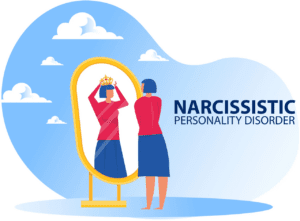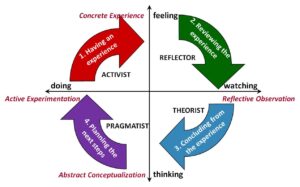Do You Know If You Have a Negative Self-Image?
A negative self-image can make you highly insecure and be a real hindrance. Fortunately, it is based on learned beliefs, which means unlearning these things is possible.
A negative self-image means that most of the thoughts you have about yourself are negative. These negative thoughts are usually based on unpleasant past experiences.
For example, have you ever given a presentation that didn’t go well? Or have you heard someone make a mean comment about how you dress?
We have a habit of thinking that these negative comments or events represent some fundamental truth about ourselves.
Fortunately, that’s not the case. Unfortunately, developing many negative beliefs about yourself due to unpleasant past experiences will ultimately lead to a negative self-image.
You’ll notice the effects of your negative self-image in both social and professional environments. After all, self-confidence (or a lack of it) affects almost everything you do.
If you have a negative self-image, you’ll quickly decide you’re doing things wrong or getting in the way of others. As a result, you’ll find it hard to trust yourself and have trouble making decisions.
Here are some possible consequences:
- Difficulty making (even small) decisions.
- Trouble establishing relationships.
- For example, being afraid to be the center of attention (when giving a presentation).
- Constantly compare yourself to others. Be (very) sensitive to criticism.
- Trouble identifying your positive qualities.
- Downplaying your successes or attributing them to someone else.
What Causes Negative Self-Image
A negative self-image doesn’t develop by itself. Instead, it occurs due to experiences that have caused you to have negative beliefs about your appearance or behavior.
You also don’t create a negative self-image overnight; it builds over time.
This means you can’t generally pinpoint a specific cause. You can create a negative self-image either earlier or later in life.
Possible causes include:
- Unpleasant experiences in (intimate) relationships.
- Lacking a sense of safety, validation, or belonging in your youth.
- Very critical parents and caregivers.
- Traumas.
What are the Consequences of a Negative Self-Image
You have to put in the work if you want to overcome a negative self-image.
The longer you wait to overcome your insecurities and gain more trust in yourself, the more likely you will encounter new unpleasant experiences that will reinforce your negative view of yourself.
This could lead to mental health conditions:
- Fear of failure
- Social Anxiety
- Eating disorders
- Sadness Depression
Do you have a Negative Self-Portrayal of your Physical Appearance?
Social appearance anxiety (i.e., fear of negative evaluation of one’s appearance), general fear of negative evaluation, and perfectionism have each been proposed as risk factors for both social anxiety disorder and eating disorders.
Social Anxiety and Eating Disorder Comorbidity
Eating and anxiety disorders are highly comorbid, with some studies finding up to 83 percent of individuals with an eating disorder also meet the criteria for an anxiety disorder.
Social anxiety disorder (SAD) has the highest occurrence of all anxiety disorders in individuals with eating disorders and is significantly more common among individuals with eating disorders.
Social Appearance Anxiety
Social appearance anxiety is “the fear that one will be negatively evaluated because of one’s appearance.”
Social appearance anxiety is positively correlated with measures of social anxiety and negative body image but does not represent mere overlap among these other constructs.
Instead, social appearance anxiety taps into a unique proportion of variability in social anxiety beyond negative body image, depression, personality, and affect. We have proposed that perceived flaws in appearance may be one of the core fears causing individuals with SAD to fear public criticism.
Maladaptive and Adaptive Perfectionism
Both socially anxious individuals and those with eating disorders have elevated levels of at least some type of perfectionism.
Perfectionism is posited to contribute to the maintenance of social anxiety by priming socially anxious individuals to assume that social interactions will be harmful because they fail to meet an excellent standard.
Similarly, several systematic reviews suggest perfectionism is a risk factor for eating disorders.
Research indicates that there are two-dimensional aspects of perfectionism. An adapted maladaptive type (e.g., evaluative perfectionism), related to adverse outcomes such as anxiety and depression time type (e.g., high standards), related to healthy functioning.
Research has found that maladaptive perfectionism has a robust positive relationship with social anxiety. In contrast, high standards have a weaker, inverse relationship with social anxiety.
Maladaptive perfectionism may be especially relevant to understanding the comorbidity between SAD and eating disorders, whereas high standards might be more relevant for eating disorders.
Maladaptive perfectionism can be conceptualized as critical self-evaluation, whereas adaptive perfectionism may be a healthy drive for personal achievement standards often seen in individuals with eating disorders.
How to Improve Your Negative Self-Image
It’s possible to overcome a negative self-image. You do this by working on your self-confidence.
The more confident you are, the less likely you are to form negative beliefs about yourself.
Here’s how you go about that:
- Say “yes” to things more often—especially stuff you’d typically say “no” to because they make you feel insecure.
- Identify your positive personality traits. You could ask a friend or family member, for example.
- Try tracking what’s going well for two weeks and how you feel about that.
- Write down all your negative thoughts about yourself and consider if these thoughts are worth your attention.
- Write down all the benefits of increased self-confidence and what would change if you believed in yourself.
The Negative Self-Portrayal Scale
The Negative Self-Portrayal Scale (NSPS) is an inventory designed to examine the degree to which individuals are concerned that specific self-attributes they view as inferior will be scrutinized and negatively evaluated by critical others in social situations.
More precisely, it assesses individuals’ concerns about social competency, physical appearance, and signs of anxiety.
Individual differences in social anxiety and avoidance behaviors have been posited to underlie differences in how individuals worry about their perceived deficient self-attributes.
The NSPS was created to tap the factors underpinning social interaction, performance anxiety, and related constructs as a utility for clinical research and practice.



